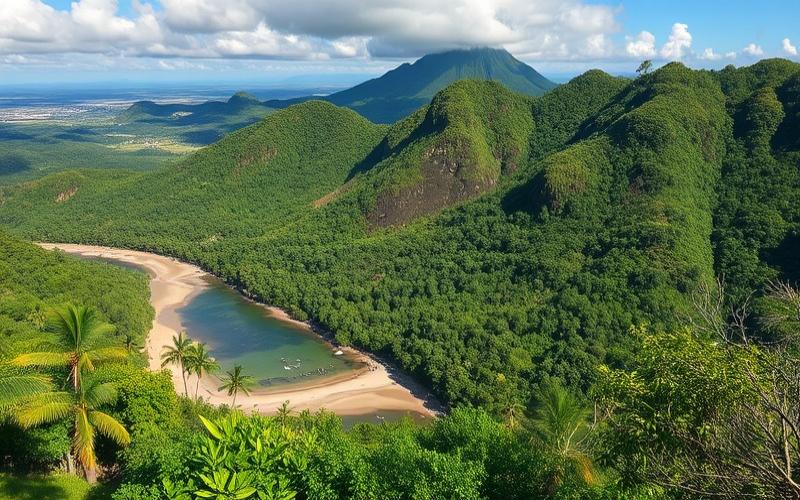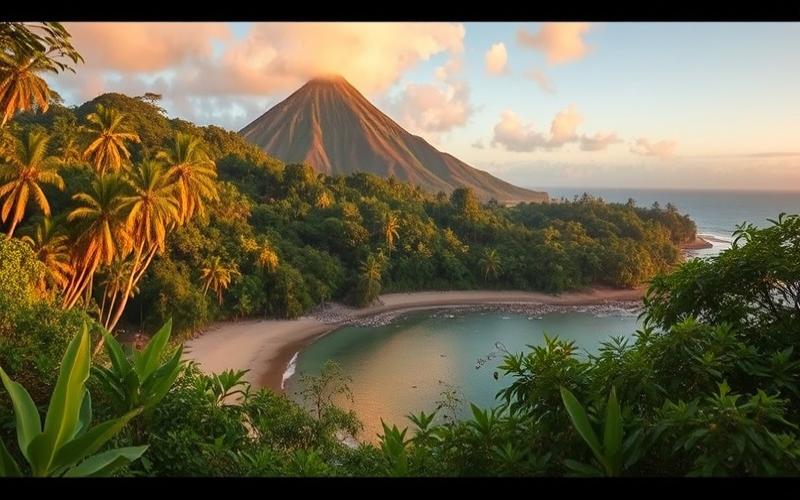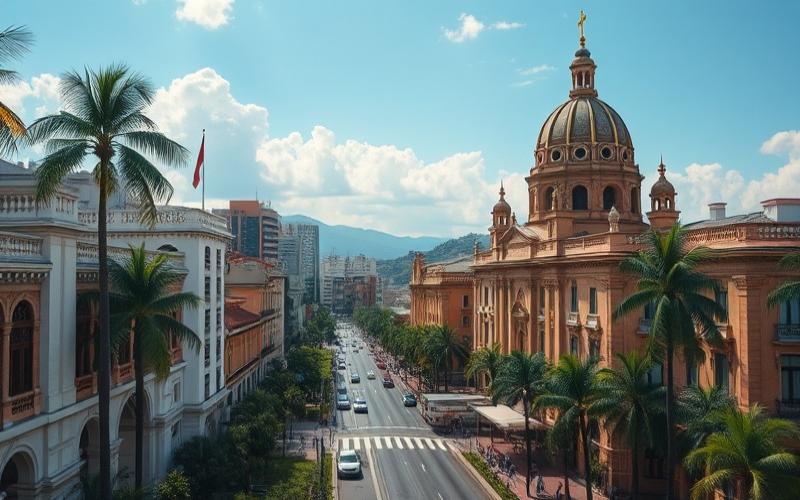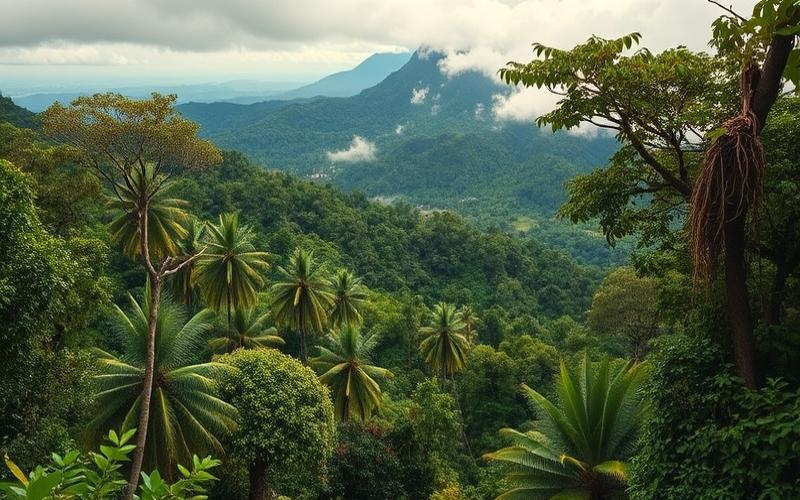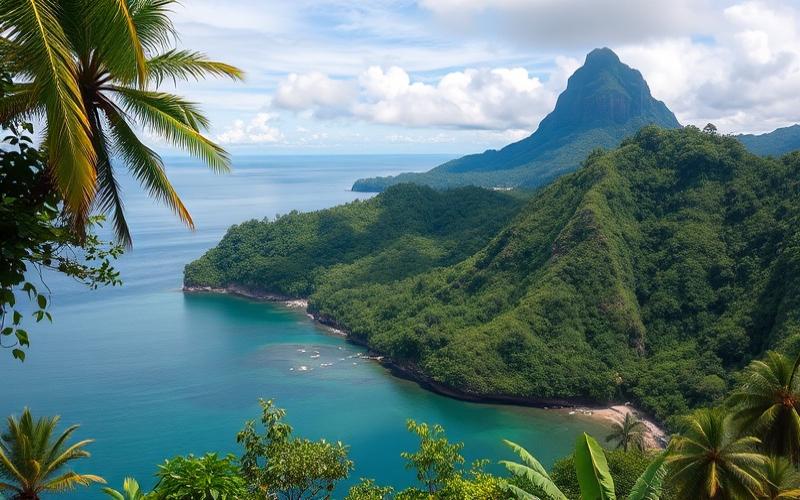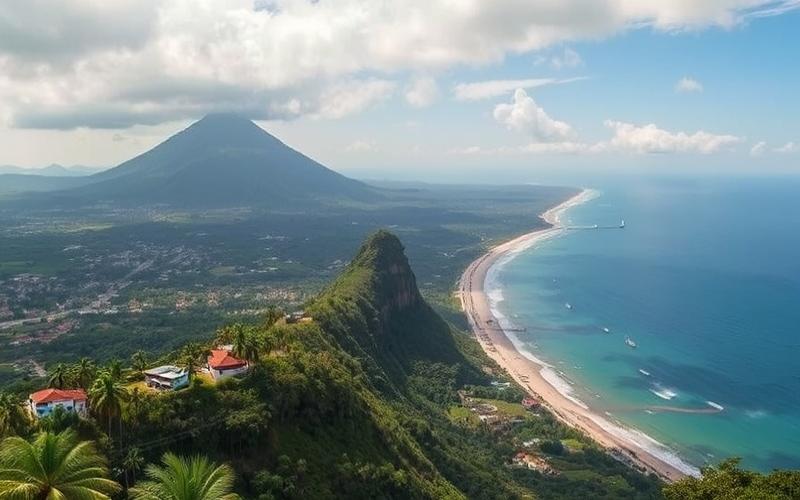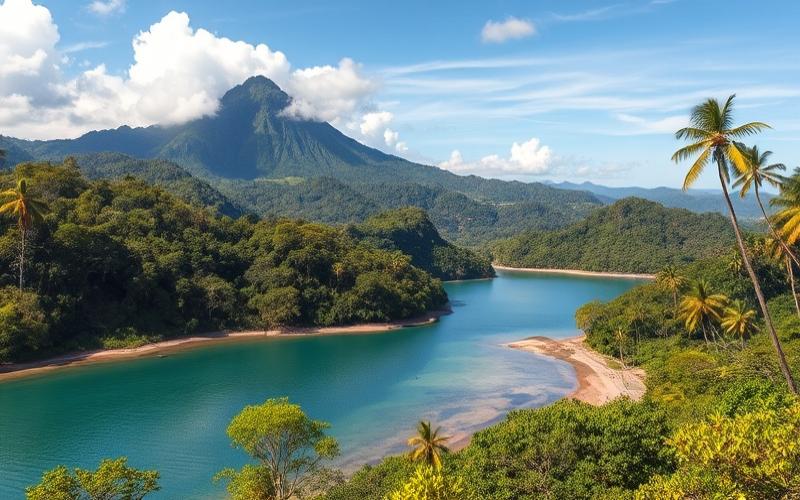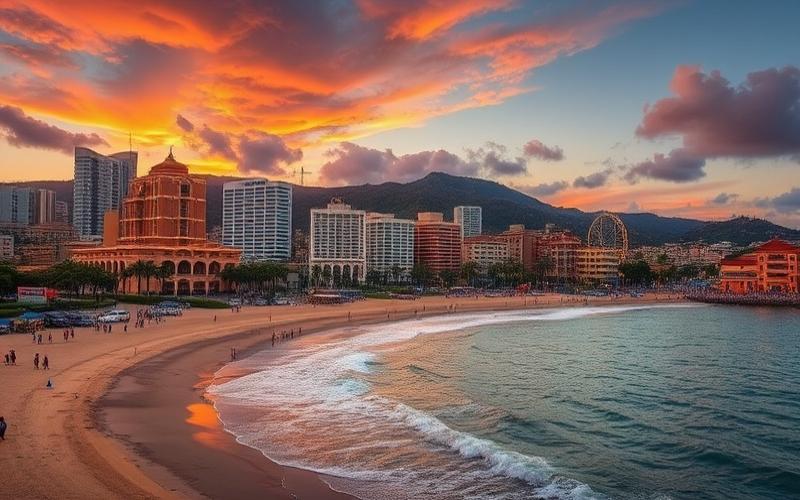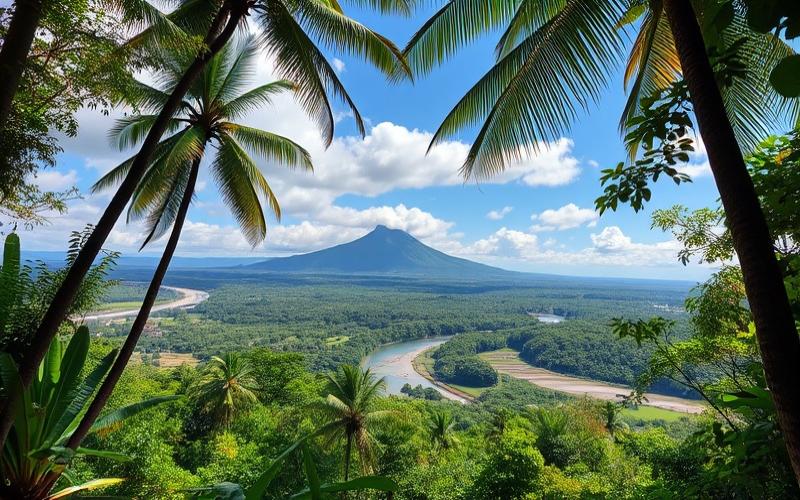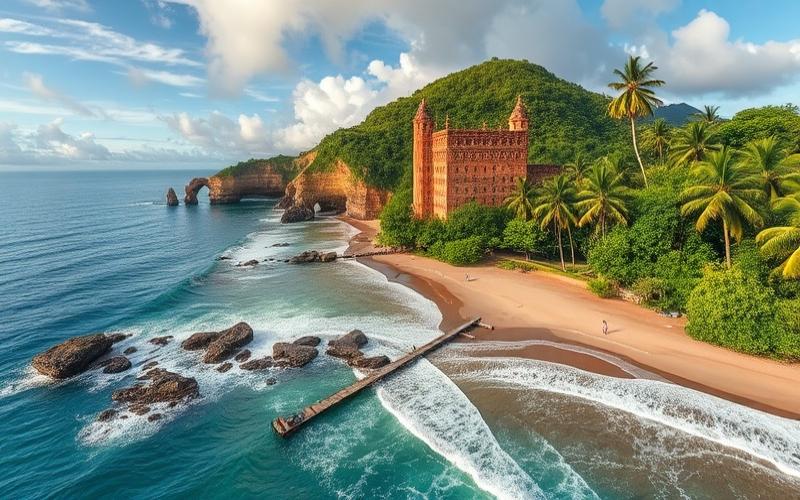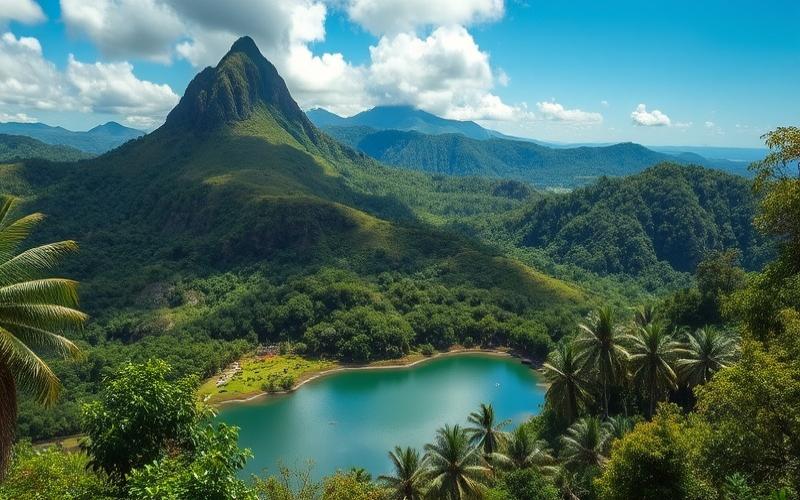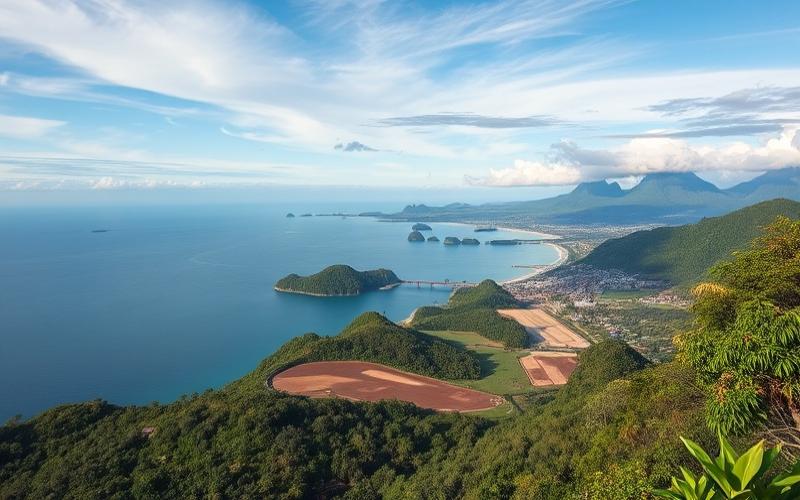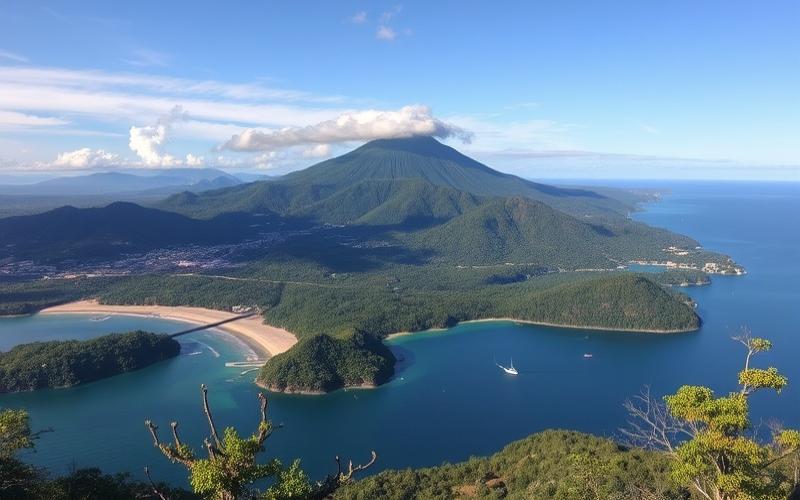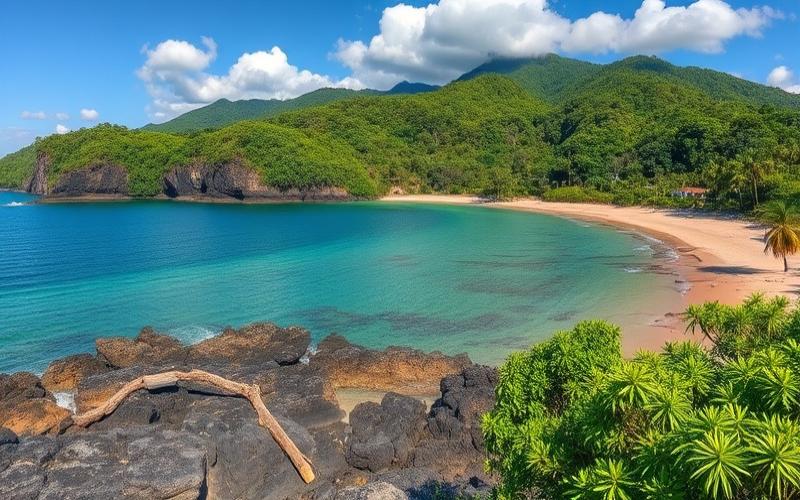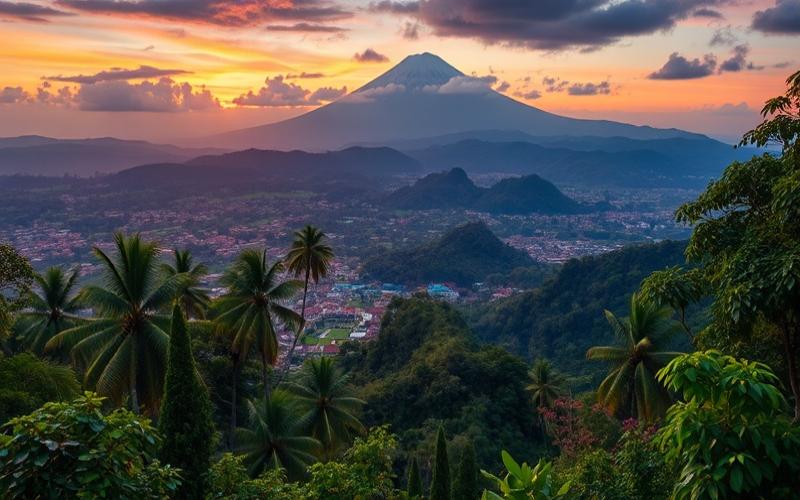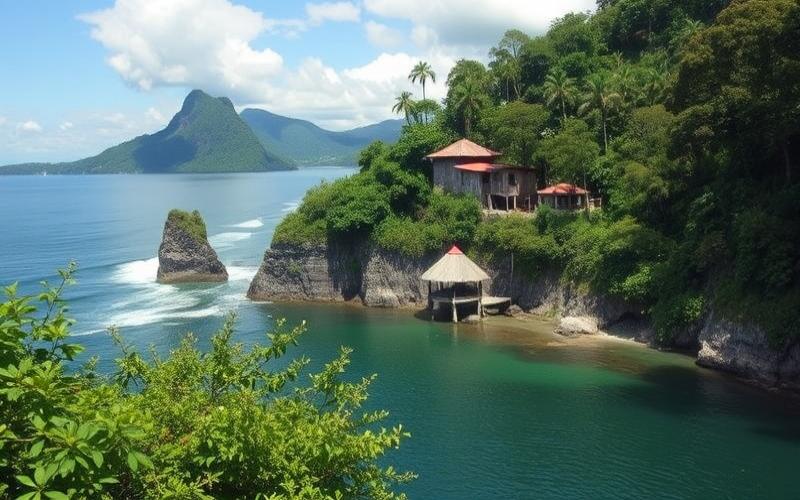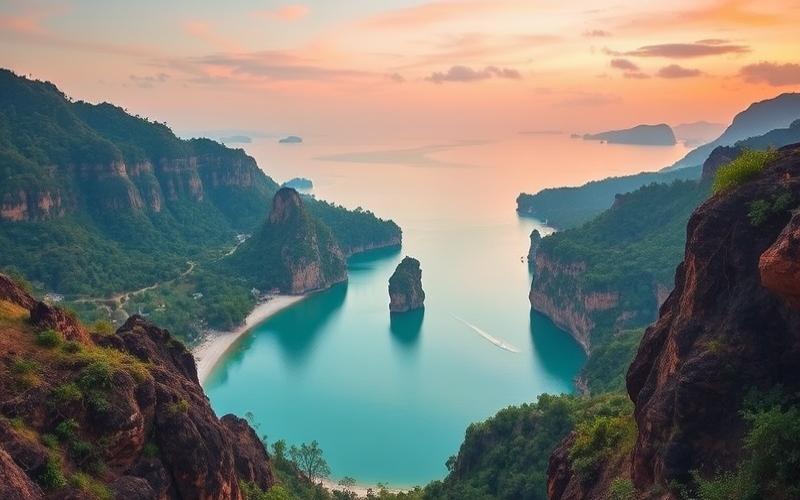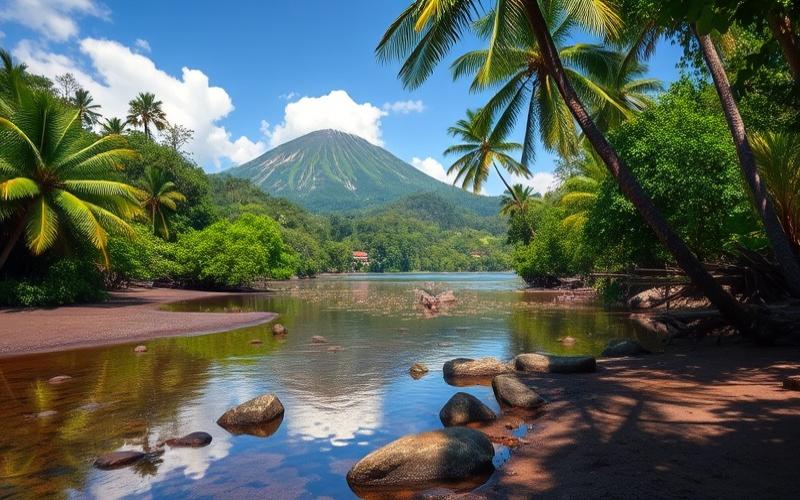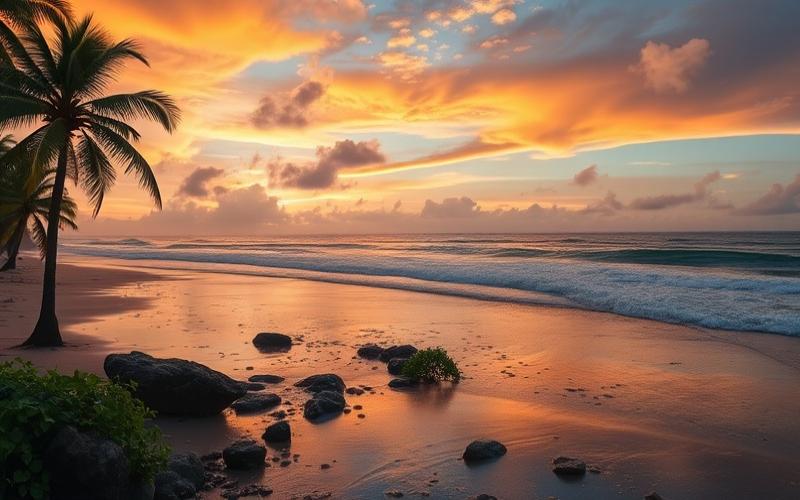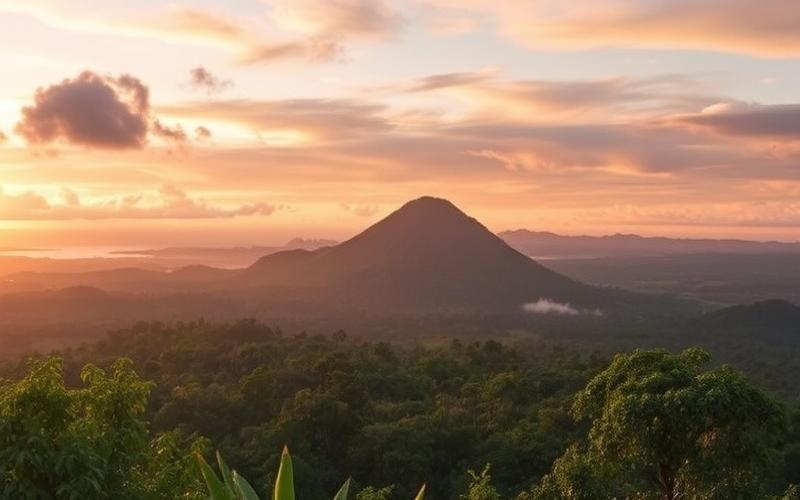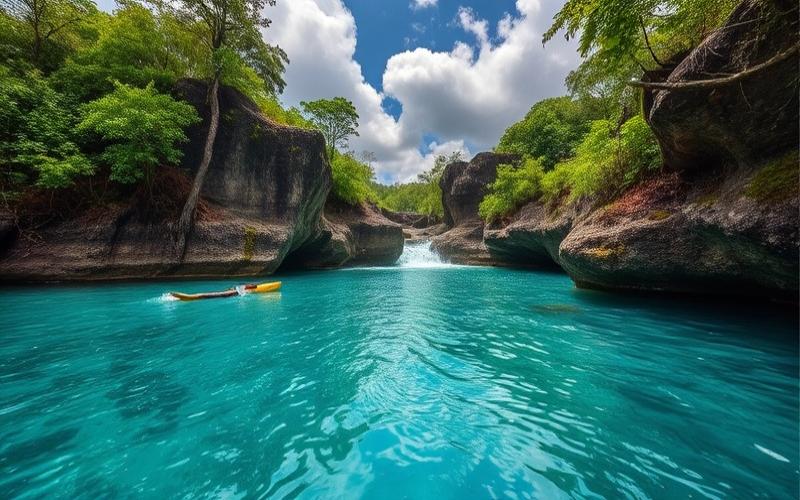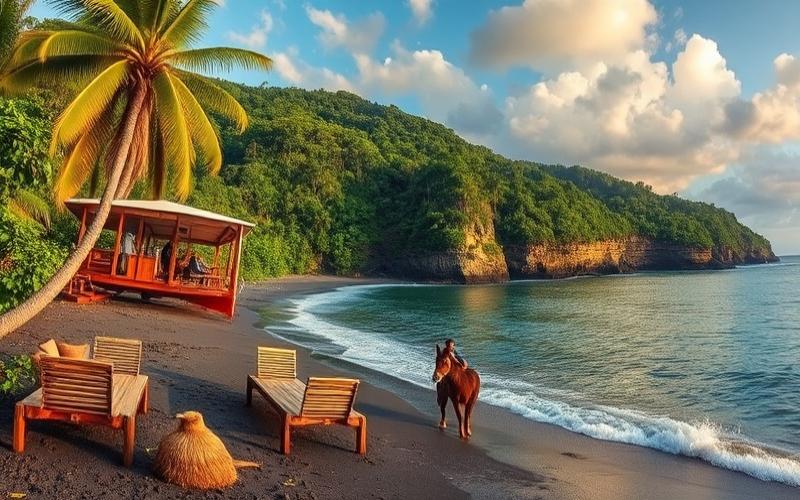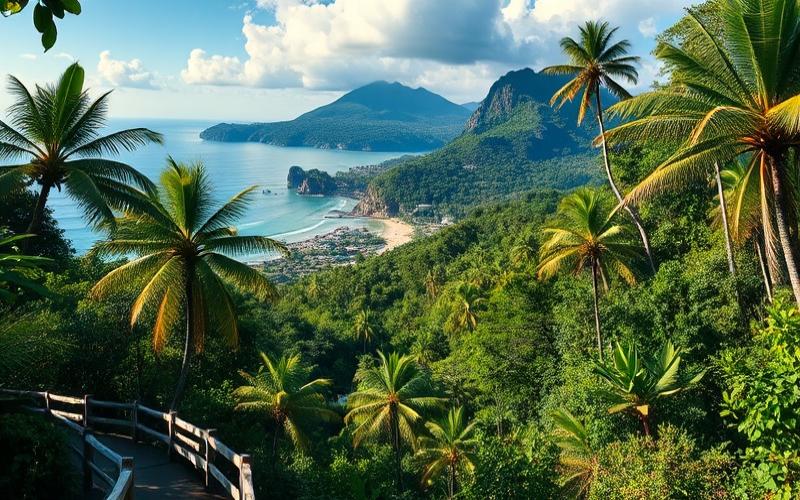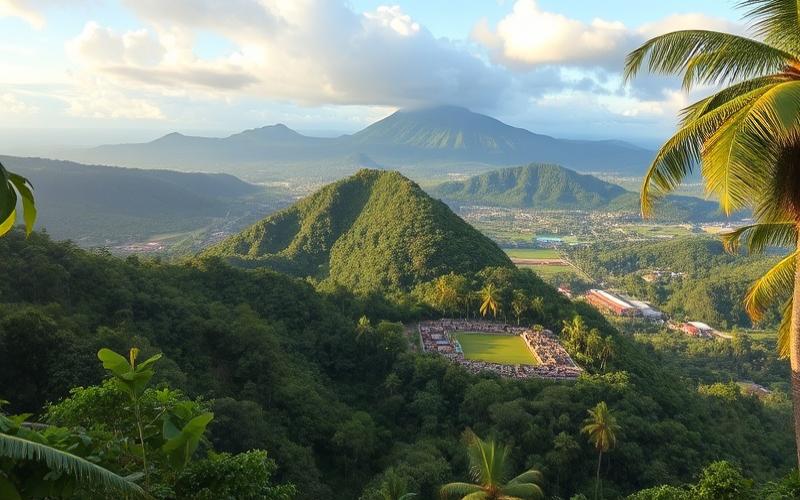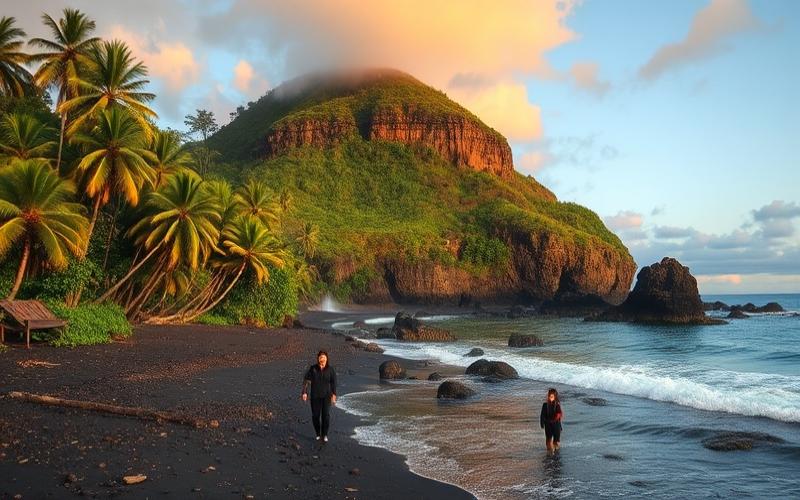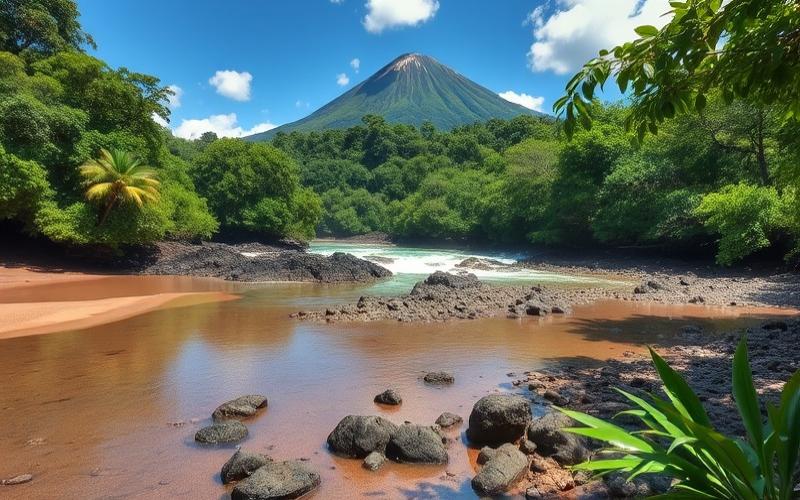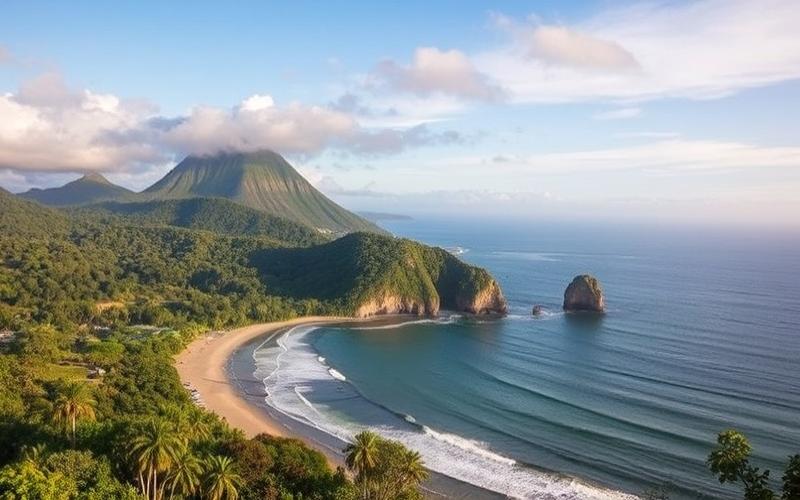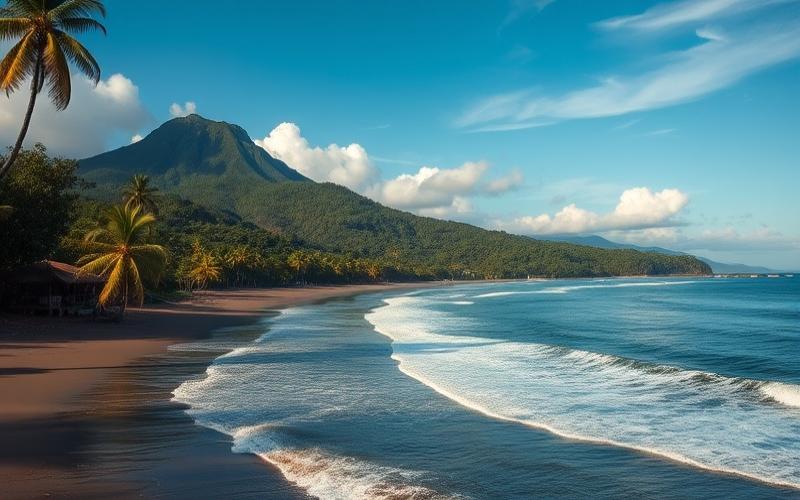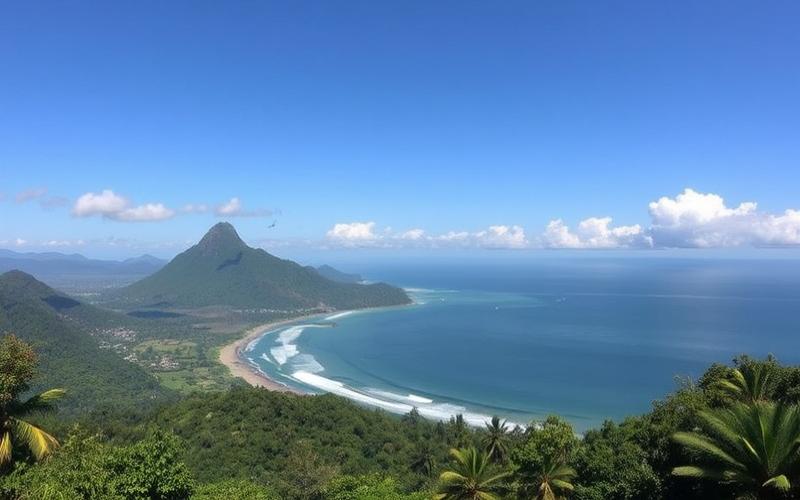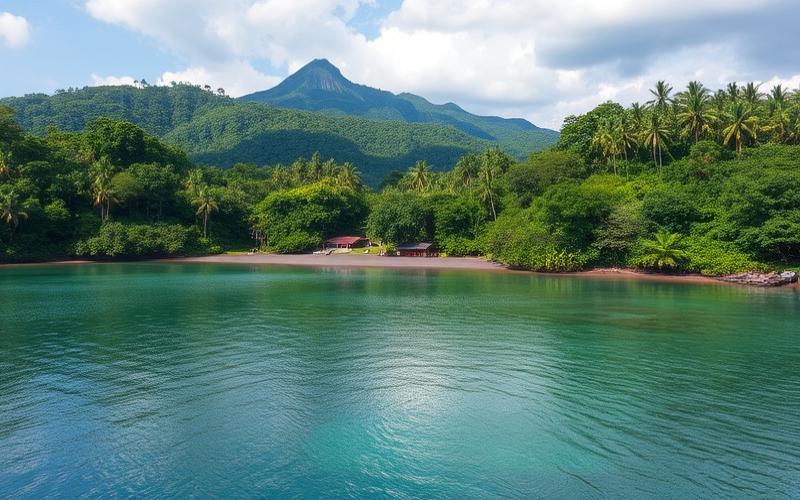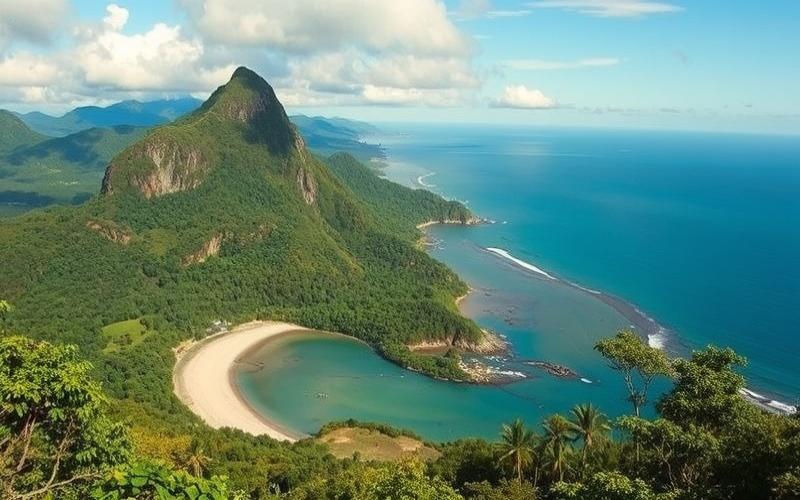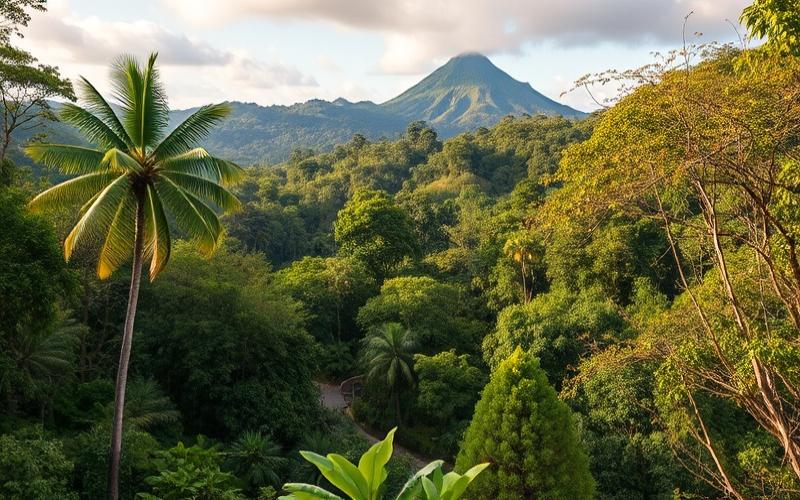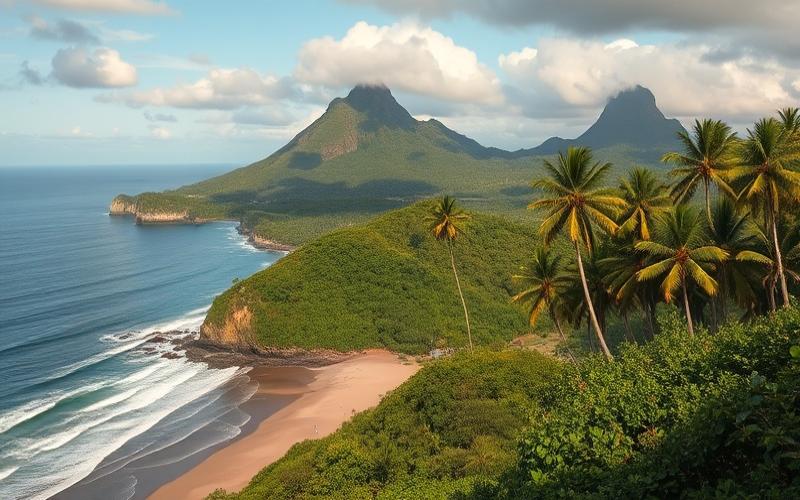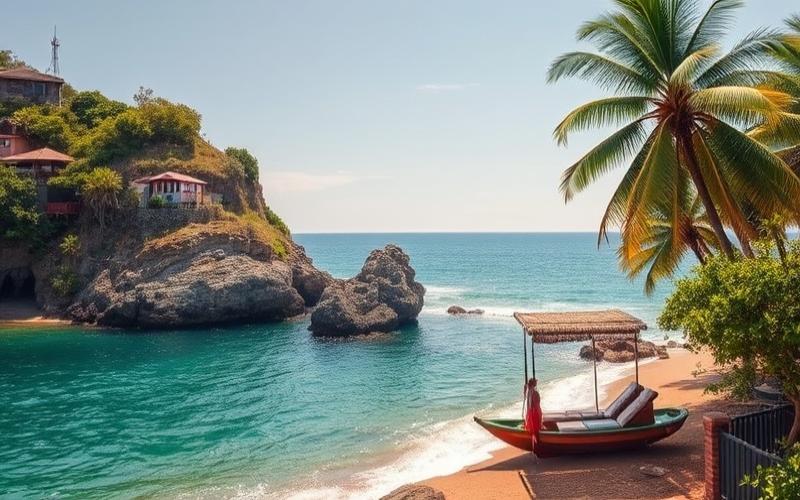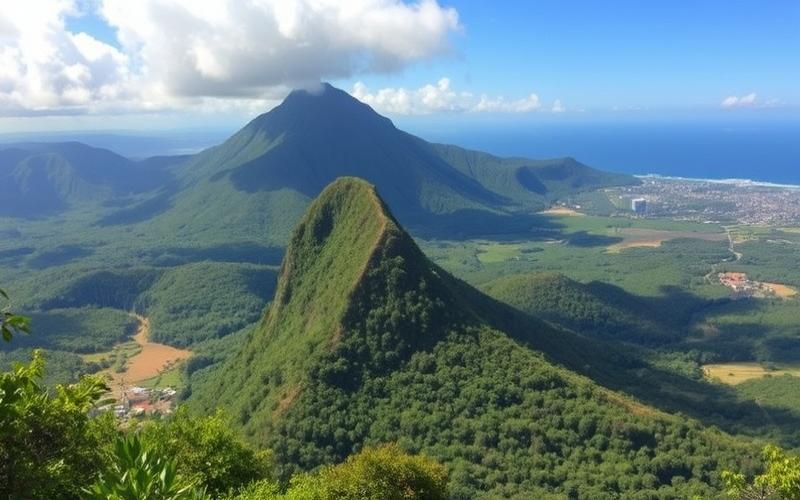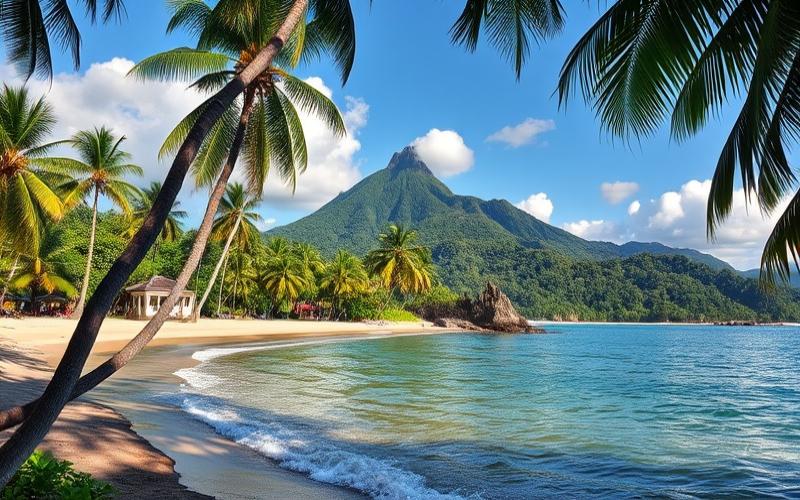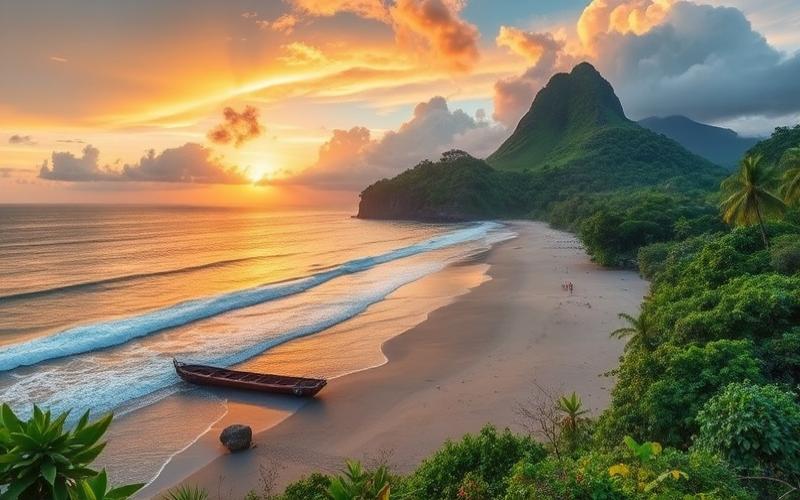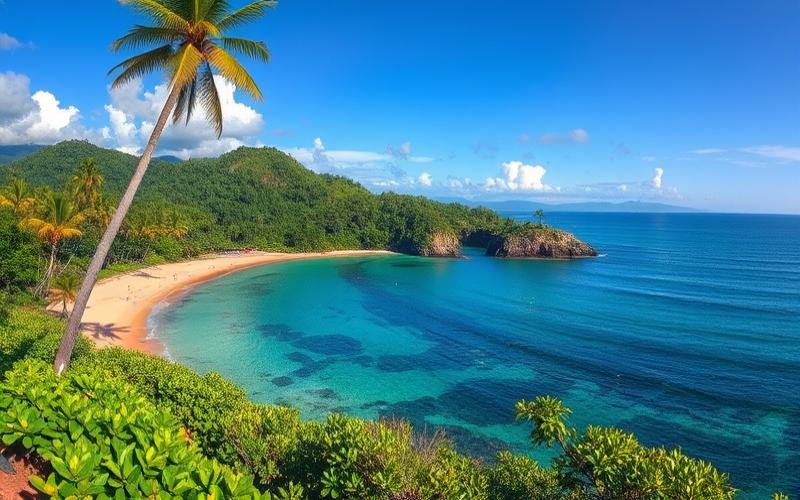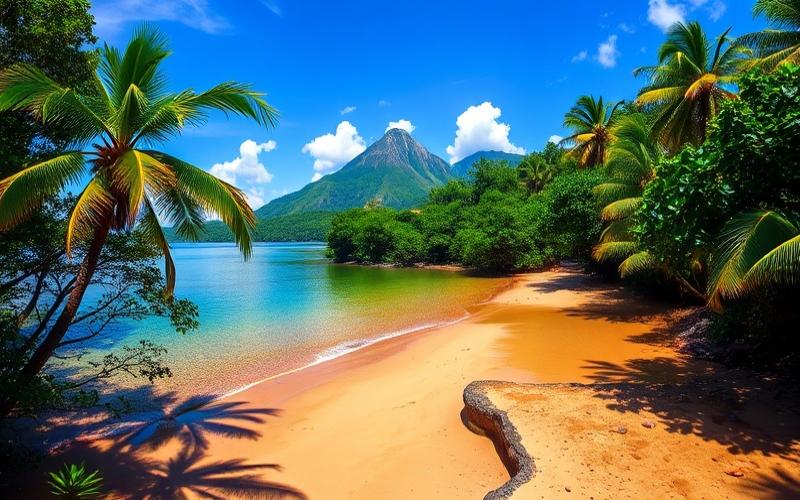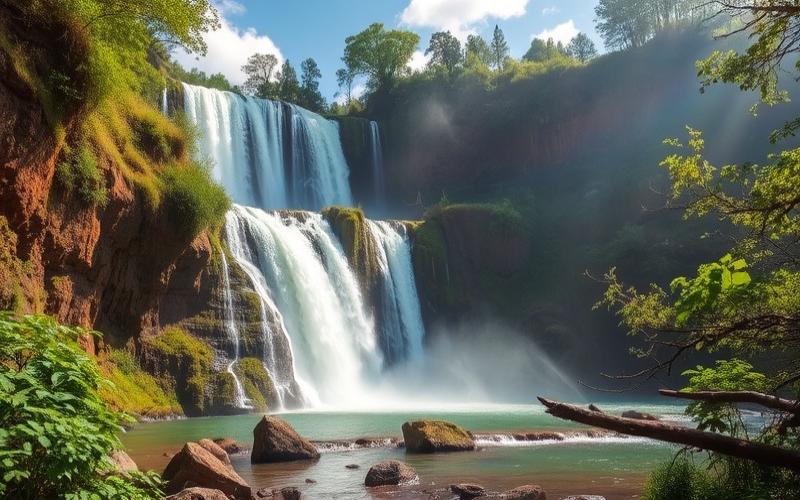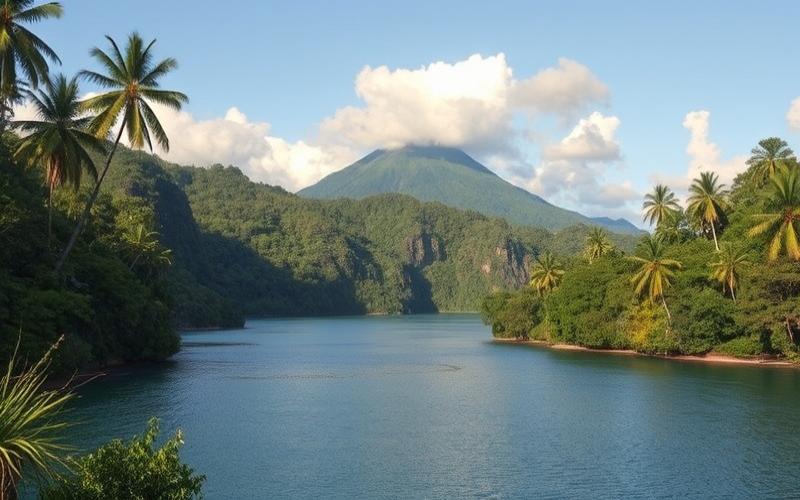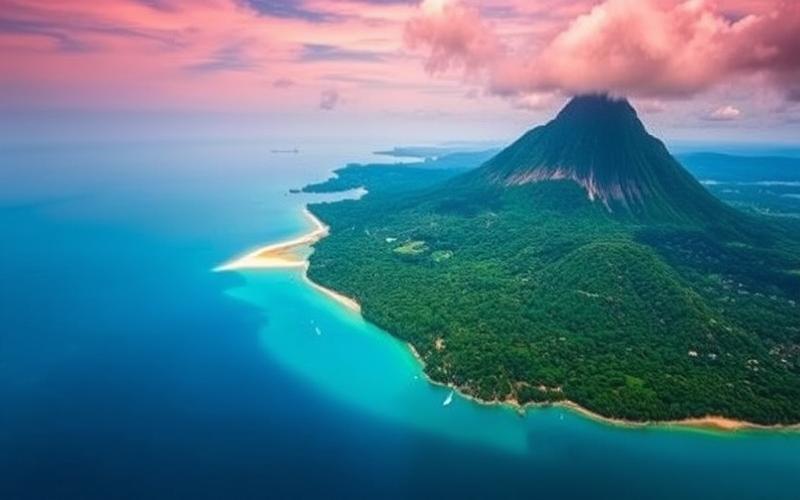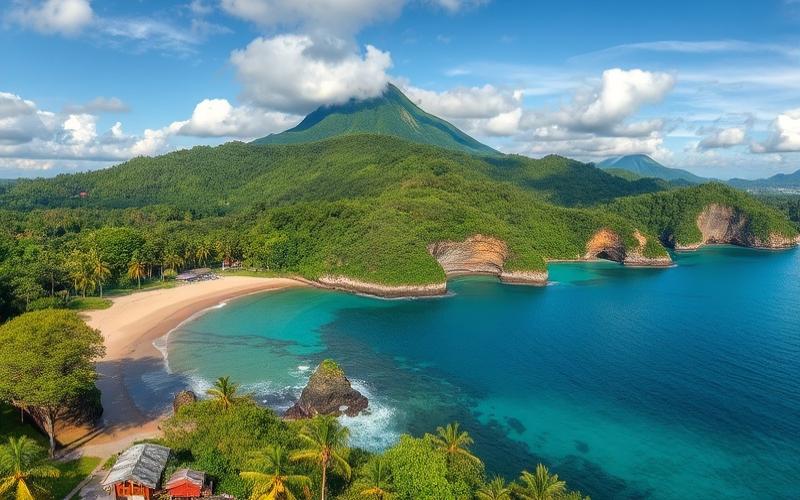
 Published on and written by Cyril Jarnias
Published on and written by Cyril Jarnias
Acquiring a Hotel in the Heart of Costa Rica’s Tropical Paradise
Acquiring a hotel in the heart of Costa Rica’s tropical paradise presents an enticing opportunity for international investors looking to combine profitability with exceptional quality of life. With its pristine beaches, stunning biodiversity, and booming tourism economy, this country offers a favorable environment for numerous business ventures.
However, purchasing a hotel involves numerous steps and factors to consider to ensure investment success. This guide provides a comprehensive checklist to guide prospective buyers through the specifics of the Costa Rican market, from local regulations and geographical conditions to financing access and profitability strategies.
Costa Rica Hotel Market Overview
Costa Rica’s hotel market is experiencing sustained growth, marked by strong expansion in the luxury segment and an increase in overall supply. Between 2023 and 2024, the country recorded a 6.5% increase in total rooms, from 52,679 to 56,106, driven primarily by the Guanacaste region (+13.3% rooms), where major international hotel chains have multiplied recent openings. Players like Marriott (with 15 ongoing projects) and prestigious brands such as Ritz-Carlton and Waldorf Astoria are strengthening the country’s position as a high-end destination in Latin America.
Key Market Trends
- Strong upmarket shift with the development of luxury and ultra-luxury hotels.
- Increased demand for eco-friendly stays, nature-integrated accommodations, and authentic experiences.
- Sustained high demand for all-inclusive resorts, particularly among North American clientele.
Occupancy Rates and Seasonality
| Segment/Region | Projected 2025 Occupancy Rate |
|---|---|
| Northern Zone | 85% |
| All-Inclusive Resorts | 83% |
| Mountain Hotels | 75% |
| Five-Star Hotels | 70% |
| National Average (Mid-Year) | 66% |
| Holy Week (Beach Coast) | 93-98% |
- Seasonality is marked by occupancy peaks during Holy Week (up to 98% on the coast), the dry high season (December-April), and school holidays.
- Off-peak periods see decreased demand, prompting hotels to offer promotions (10-30% discounts, multi-night packages, preferential rates for residents) to attract local clientele.
Economic Influences and Growth Forecasts
Despite global tourism growth (+5% in Q1 2025), Costa Rica experienced a temporary slowdown in bookings in mid-2025, with a 3.8% drop in demand compared to the previous year.
Hotel sector revenue is expected to reach $89.6 million USD in 2025, with an estimated annual growth rate of 5.5%.
Tourism accounts for approximately 10.5% of the workforce, reinforcing the sector’s economic importance.
Main Tourist Destinations and Customer Profiles
| Main Destination | Dominant Clientele | Key Attractions |
|---|---|---|
| Guanacaste | North Americans, Europeans, Families | Beaches, Luxury Resorts, Golf, Nature |
| San José | Business, Short Stays, Urban Tourists | Culture, Museums, Airport Access |
| Manuel Antonio | Couples, Families, Eco-Tourists | National Park, Wildlife/Flora, Beaches |
| Arenal/La Fortuna | Adventurers, Wellness, Nature | Volcano, Hot Springs, Activities |
| Monteverde | Eco-Tourists, Nature Enthusiasts | Cloud Forest, Biodiversity |
Local Competition
Presence of major international chains: Marriott, Hilton, Hyatt, Wyndham, Four Seasons, Ritz-Carlton, Waldorf Astoria.
Numerous small boutique hotels and independent eco-lodges, particularly in rural and coastal areas, focusing on authenticity, personalized service, and sustainable tourism.
Regulations and Sector Initiatives
The hotel sector is regulated by the Costa Rican Tourism Board (ICT), which issues certifications (including the CST label for sustainability).
Environmental standards are strict, with incentives for obtaining eco-certifications.
The government supports initiatives to attract foreign investment and high-end clientele while promoting responsible tourism.
Opportunities
- Growth in the luxury and eco-friendly segments.
- Increased demand for personalized and immersive experiences.
- Government support and political stability.
Challenges
- Marked low season with volatile local demand.
- Increased competition, especially in mature destinations.
- Need for significant investments to meet international and environmental standards.
- Pressures on natural resources and sustainable growth management.
Key Takeaways
The Costa Rican hotel market is rapidly evolving, driven by innovation, upmarket trends, and sustainability, but remains exposed to seasonal demand cycles and intense local and international competition.
Good to Know:
The Costa Rican hotel market exhibits marked seasonality, with high occupancy rates during the dry season from December to April, while they drop during the rainy season. Main tourist destinations such as San José, Manuel Antonio, and the Guanacaste region attract a diverse clientele, ranging from eco-tourists to beach lovers. The hotel sector is dominated by both international chains like Marriott and Hilton and numerous boutique hotels offering a more local experience. Although Costa Rica’s economy is stable and favorable to tourism, strict construction and environmental regulations, as well as the 13% tourism tax, influence the hotel market. Nevertheless, government initiatives to promote sustainable tourism offer opportunities for savvy investors. Competition, especially in popular areas, is a challenge, but a unique and authentic proposition can distinguish a new player. According to forecasts, the sector is expected to grow at an average annual rate of 3%, supported by increasing international arrivals and efforts to improve air accessibility.
Understanding Due Diligence for Acquiring a Hotel in Costa Rica
Essential Due Diligence Elements When Acquiring a Hotel in Costa Rica:
In-Depth Financial Assessment:
- Analysis of financial statements over several fiscal years.
- Verification of net income, cash flows, and occupancy rate.
- Detailed review of accounts receivable (receivables to collect) and accounts payable (outstanding debts).
- Check of tax compliance, including tax returns and any potential tax debts.
Legal and Regulatory Verification:
- Confirmation that the current hotelier holds all necessary permits and licenses:
- Health permit issued by the Costa Rican Ministry of Health
- Municipal business licenses
- Registrations with the Tourism Ministry (ICT) if applicable
- Compliance with local environmental regulations
Consultation with a specialized local attorney to validate all these elements.
Technical Inspection of Infrastructure and Equipment:
| Equipment/Infrastructure | Points to Check |
|---|---|
| Roof, Walls, Foundations | Presence of moisture, cracks, or mold |
| Electrical Systems | Compliance with standards, general condition |
| Sanitary Systems | Proper functioning, absence of leaks |
| Air Conditioning/Heating | Regular maintenance |
| Fire Safety | Up-to-date extinguishers, compliant exits |
Recommended use of specialized tools like thermal imaging or moisture detectors to identify hidden problems.
Analysis of the Local Hotel Market:
List of key factors to study:
- Average occupancy rate in the target region
- Seasonal trends in international and domestic tourism
- Presence and pricing strategy of direct competition (other similar hotels)
- Local accessibility: proximity to beaches/major tourist sites
Detailed Review of Existing Contracts:
Critical contractual points:
Staff Agreements:
- Individual/multiple contracts compliant with Costa Rican labor law
- Potential existence of unprovided severance or social liabilities
Suppliers & Commercial Partners:
Long-term commitments that could constrain the buyer
Also include legal analysis of commercial leases if the building is not fully owned.
Good to Know:
When acquiring a hotel in Costa Rica, rigorous due diligence is essential. Meticulously analyze the hotel’s financial statements to understand its profitability, scrutinizing net income and verifying the status of accounts receivable and payable. Ensure all licenses and operating permits required by Costa Rican legislation are in order. Inspect infrastructure and equipment to guarantee compliance with current standards and avoid unexpected upgrade costs. Assess the local market by examining tourist demand and competition to anticipate challenges and opportunities. Carefully study existing contracts, such as employee agreements, to prevent future disputes. Engage legal and accounting professionals to help confirm that all aspects of the acquisition are sound, protecting you from costly surprises in the long term.
Key Tourism and Hotel Statistics in Costa Rica
| Indicator | Most Recent Data (2024-2025) |
|---|---|
| Number of International Visitors | 2.6 million in 2024 (+7.7% vs 2023) |
| Main Nationalities | United States, Canada, Europe (France, UK, Germany, Spain) |
| Number of French Visitors | 70,000 in 2024 |
| 2025 Variation (Early Year) | 4.7% drop in air arrivals (May) |
| Hotel Occupancy Rate (Average) | 65-70% (recent sector estimate, varies by season and region) |
| Tourism Revenue Generated (2025 Q1) | $1.77 billion USD (Jan-Mar) |
| Total Revenue (2024, Estimated) | Approximately $4 billion USD |
| % of National GDP (Pre-Pandemic) | 8 to 9% |
Geographical Distribution of Tourism Activities
- Pacific Coast: Tamarindo, Manuel Antonio, Guanacaste – beaches, surfing, high-end beach hotels
- Central Region: San José (capital), Poás Volcano, urban and cultural activities
- North: Arenal, La Fortuna – volcanoes, hot springs, adventure
- Caribbean: Puerto Viejo, Tortuguero – biodiversity, ethnic and nature tourism
| Region | Major Points of Interest | Estimated Share of Tourist Flow |
|---|---|---|
| Pacific Coast | Beaches, National Parks, Surfing, Hotels | 45-50% |
| Central Valley | Culture, Business, Stopovers | 20-25% |
| Volcanic North | Adventure, Thermalism | 15-20% |
| Caribbean | Nature, Wildlife, Afro-Caribbean Culture | 10-15% |
Main Tourism Trends
Ecotourism: Costa Rica is a pioneer in Latin America, with over 25% of its territory in national parks or protected reserves. The hotel supply is moving towards eco-friendly practices (certifications, sustainable water and waste management, local involvement).
Sustainable Development: Government incentive programs, CST standards (Certification for Sustainable Tourism), priority on carbon neutrality.
Adventure Tourism: Ziplining, rafting, hiking, wildlife observation.
Wellness Tourism: Growth of spas, yoga retreats, “adults only” hotels.
Temporary Market Downturn (2025): After the post-COVID recovery, a slowdown in early 2025, decrease in visitors mainly from North America and Europe.
Hotel Infrastructure and Services
Wide Range: Luxury hotels, all-inclusive resorts, eco-lodges, hostels, villa rentals.
Connectivity: Two major international airports (San José, Liberia); developed but sometimes congested road networks.
Investor Services:
- Free zones and tax incentives for hotel investment
- Qualified, multilingual local workforce
- Institutional support via ICT (Costa Rican Tourism Board)
- Complementary services: Tour operators, travel agencies, digital platforms, certified naturalist guides.
List of Strengths for Hotel Investors
- Political stability and relative security
- Strong “ecotourism” and “green destination” image
- Diverse clientele (North Americans, Europeans, domestic)
- Varied land and real estate offerings
- Seasonal market but steady flow due to climate
Trends and Challenges to Monitor
- Recent drop in arrivals, need to adapt offerings
- Pressure on natural resources, adaptation to ESG criteria
- Digitalization of hotel distribution
- Opportunities in niche tourism (wellness, luxury, nature)
Good to Know:
Costa Rica welcomes approximately 3 million international visitors per year, with Americans, Canadians, and Europeans constituting the main tourist nationalities. The average hotel occupancy rate hovers around 65%, peaking during the high season from December to April. Coastal areas and national parks concentrate the bulk of tourism activity, fostering development focused on ecotourism and sustainable tourism, aligning with global sector trends. In 2023, tourism generated about 8% of GDP, highlighting its crucial importance to the local economy. Hotel infrastructure continues to modernize to meet growing tourist expectations, integrating green technologies and digital services. These elements make Costa Rica a strategic location for investing in the hotel sector.
Key Takeaway: Costa Rica remains a flagship destination in Central America but is experiencing a slight contraction in international tourist flow in 2025. Its model focused on ecotourism and sustainability, diverse infrastructure, and government support make it a prime target for hotel investment, provided new traveler expectations and environmental requirements are integrated.
Tips for Investing in Costa Rican Hotel Real Estate
Analysis of Hotel Market Trends
- The Costa Rican hotel market is growing with projected revenue of $89.62 million USD in 2025 and an average annual growth rate of 6.93% until 2030.
- Travelers increasingly seek unique experiences, eco-friendly accommodations, and all-inclusive resort stays.
- “Sun and Beach” regions show particularly high occupancy rates during tourist peaks, with up to 98% occupancy during Holy Week.
- The post-pandemic recovery is marked by strong international demand, although competition is intensifying and some segments, particularly urban hotels, experience seasonal slowdowns.
Promising Tourist Zones for Investment
- Northern Zone: occupancy rates reaching 85% during seasonal peaks.
- Beach Areas (Guanacaste, Puntarenas, Limón): highly sought after by international and domestic tourists.
- Mountains and Ecotourism (Monteverde, La Fortuna/Arenal): growing attractiveness for travelers seeking nature and adventure.
- Coastal Cities and National Parks: benefit from the rise of sustainable tourism and outdoor activities.
Investment Zone Comparison Table
| Zone | Occupancy Rate (High Season) | Main Assets |
|---|---|---|
| Northern Zone | 85% | Nature, Ecotourism, Thermalism |
| Sun & Beach | 93-98% | Beaches, Resorts, International Tourism |
| Mountains | 75% | Hiking, Biodiversity |
| Urban/San José | Variable | Business, Culture, Services |
Regulatory and Legal Specificities
- Foreigners can acquire real estate, including hotels, under the same conditions as nationals (excluding protected maritime zones).
- Coastal areas (first 200-meter strip) are subject to state concession, requiring specific procedures.
- It is crucial to verify the property title, any potential easements, land use, and compliance with municipal regulations.
- Hotel management is subject to obtaining operating, safety, and hygiene permits, as well as compliance with increasingly strict environmental standards.
Importance of Partnering with Local Real Estate Agents
- Local agents master the legal, tax, and administrative subtleties of Costa Rica.
- They have a network for identifying off-market opportunities and accessing reliable partners (notaries, architects, managers).
- Their expertise is valuable for negotiating prices, validating project viability, and anticipating market developments.
Optimal Financing Strategies
- Local bank financing possible, but often reserved for residents or investors with strong guarantees.
- Equity contributions recommended to speed up procedures and obtain better conditions.
- Possibility of partnerships with private investors or recourse to investment funds specialized in hospitality.
- Tax incentives exist for projects promoting sustainable development and local employment.
Examples of Recent Success Stories
- A boutique hotel in Monteverde doubled its revenue by diversifying services (spa, nature workshops, local cuisine) and adopting an eco-friendly policy.
- An all-inclusive resort in Guanacaste capitalized on growing demand for wellness and the “all-inclusive” experience by creating personalized packages.
- Small family hotels increased their occupancy rates by collaborating with travel agencies and online platforms, while promoting to domestic tourists during off-peak periods.
Tips for Diversifying Hotel Services
- Offer immersive activities (cooking classes, guided tours, cultural workshops).
- Develop a wellness offering (spa, yoga, natural treatments).
- Integrate dining with local products and menus adapted to different customer profiles.
- Adapt to growing demand for digital stays (coworking spaces, high-speed wifi).
- Implement flexible offers and targeted promotions based on seasonality and customer segments.
List of Key Points to Remember
- Study market trends and target tourist zones with high potential.
- Surround yourself with local professionals to secure acquisition and management.
- Diversify services to retain a varied clientele and maximize revenue.
- Prioritize innovation, sustainability, and customer experience personalization.
- Anticipate regulatory and environmental evolutions to ensure investment longevity.
Investing in Costa Rican hotel real estate requires a structured approach, excellent knowledge of the local market, and constant adaptability to seize the best opportunities in a competitive and evolving environment.
Good to Know:
Investing in Costa Rican hotel real estate requires thorough analysis of market trends, including the growth of sustainable tourism, and evaluating dynamic tourist zones like Guanacaste and the Arenal region. Understanding regulatory specificities, such as permit and licensing requirements specific to hospitality, is essential to avoid legal complications. Collaborating with experienced local real estate agents helps navigate the market and identify golden opportunities. To finance your project, consider partnerships with investors or bank loans aligned with your business objectives. Success stories, like the Gaia Hotel in Manuel Antonio which diversified its services with an eco-spa, show the importance of innovation and diversification to maximize revenue and ensure lasting success in a competitive sector.
Disclaimer: The information provided on this website is for informational purposes only and does not constitute financial, legal, or professional advice. We encourage you to consult qualified experts before making any investment, real estate, or expatriation decisions. Although we strive to maintain up-to-date and accurate information, we do not guarantee the completeness, accuracy, or timeliness of the proposed content. As investment and expatriation involve risks, we disclaim any liability for potential losses or damages arising from the use of this site. Your use of this site confirms your acceptance of these terms and your understanding of the associated risks.

